|
|
 |
|
|
|
| Education |
| Education: Nurturing Potential, Empowering Futures |
|
At NYSASDRI, education is not just a service it’s a commitment to social justice and human dignity. From the deeply remote tribal belts of Rayagada to the aspiring youth of central Odisha, we have created pathways for learning that are rooted in need, equity, and purpose. On one end, we nurture tribal girls who have been historically left behind, providing them with residential schooling, safety, and opportunity. On the other, we empower future professionals in journalism and social work those who will become changemakers, storytellers, and advocates for the voiceless. This dual approach reflects our core belief: education must reach both the margins and the mainstream if we are to build a truly inclusive and compassionate society.
|
|
| NYSASDRI Educational Complex for Tribal Girls at Rayagada district of Odisha |
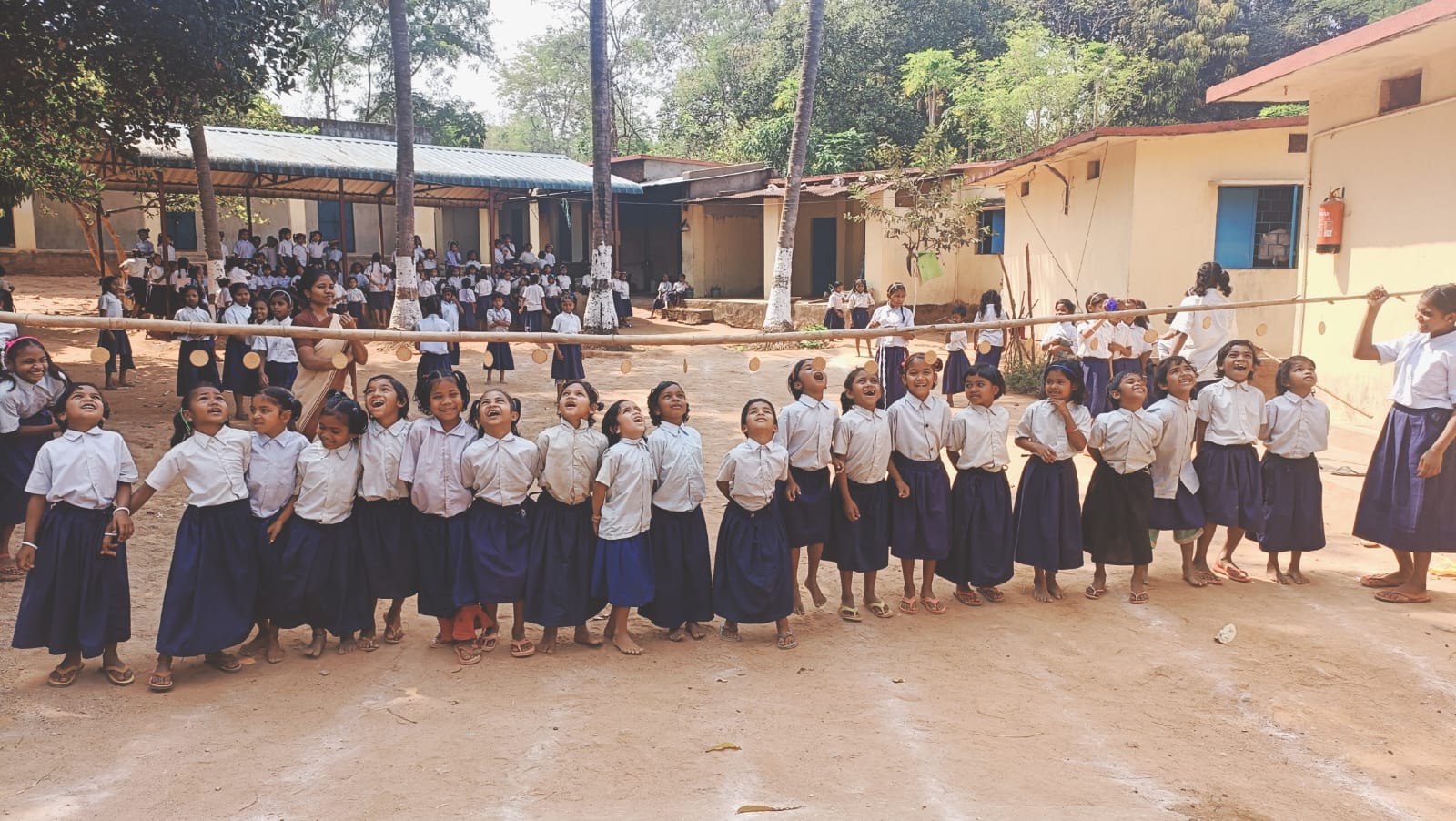 In the remote and underserved district of Rayagada, where over 57% of the population belongs to tribal communities and female literacy remains critically low, NYSASDRI initiated a bold step toward educational equity. Since 1996, the NYSASDRI Educational Complex for Tribal Girls in Hukumtola village has provided residential schooling to tribal girls who might otherwise be denied the opportunity to learn.
Starting with just 50 girls from classes I to V, today the school supports 189 students from classes I to VI, each receiving not only education but also care, dignity, and safety. The school combats the root causes of illiteracy, such as migration, poverty, and social stigma against girls' education, by offering:
In the remote and underserved district of Rayagada, where over 57% of the population belongs to tribal communities and female literacy remains critically low, NYSASDRI initiated a bold step toward educational equity. Since 1996, the NYSASDRI Educational Complex for Tribal Girls in Hukumtola village has provided residential schooling to tribal girls who might otherwise be denied the opportunity to learn.
Starting with just 50 girls from classes I to V, today the school supports 189 students from classes I to VI, each receiving not only education but also care, dignity, and safety. The school combats the root causes of illiteracy, such as migration, poverty, and social stigma against girls' education, by offering:
- A secure residential hostel with clean dormitories, 24-hour electricity and water, sanitation, and a common space for recreation and indoor games.
- Nutritious meals, school uniforms, books, hygiene kits, and monthly supplies to ensure that no basic need is unmet.
- Health & hygiene care including regular medical check-ups, monthly sanitary pad distribution, and menstrual hygiene tracking.
- Academic support through incentives, free tuition, and extra classes.
- Cultural and holistic development via festivals, competitions, sports, vocational skills like art and craft, and structured daily routines with prayers, meditation, and reflection.
- Parental engagement through monthly parent-teacher meetings, strengthening the home-school connection.
Year after year, our students excelqualifying for entrance into Odisha Adarsha Vidyalayas (OAVs), Eklavya Model Residential Schools (EMRS), and SSD schoolsbecoming the first generation in their families to pursue higher education with confidence.
|
|
| NYSASDRI School of Journalism and Social Work (NSJS) |
The NYSASDRI School of Journalism and Social Work (NSJS) is a vibrant hub for youth aspiring to build careers in social work and mass communication, two fields that are essential for an equitable and informed society started in 2013.
Over the past 12 years, NSJS has been a launchpad for transformative journeysoffering postgraduate programs in Master of Social Work (MSW) and Master of Journalism and Mass Communication (MJMC). Our curriculum is rooted in academic rigor and hands-on learning, including:
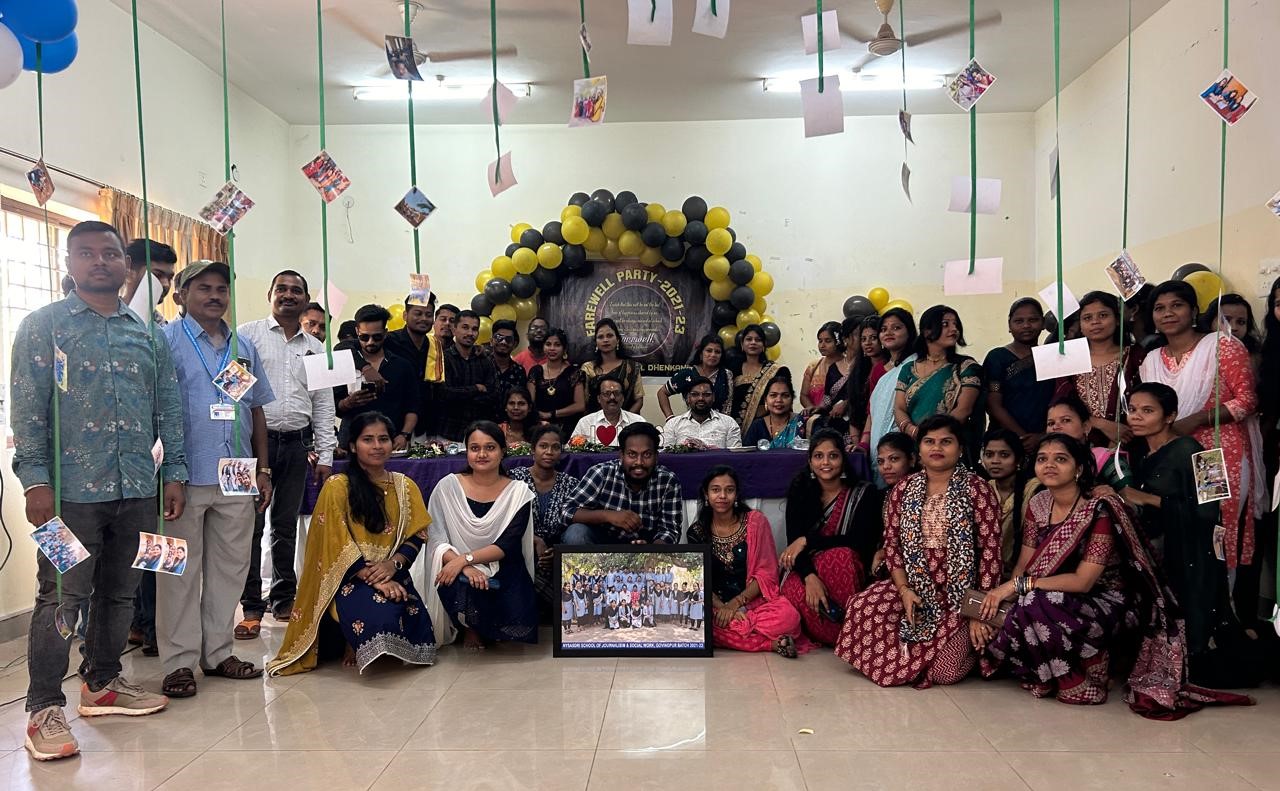
- Fieldwork in rural and urban communities
- Rural immersion camps
- Research-based dissertations
- Training with NGOs, media houses, rehabilitation center, and development agencies
At NSJS, we prepare responsible professionalsthose who give voice to the voiceless through journalism and those who bring compassion and action into communities through social work.
|
|
| Student’s District wise flow (From 2013-2024) |
Year wise student’s enrolment and pass out (2013 to 2024)
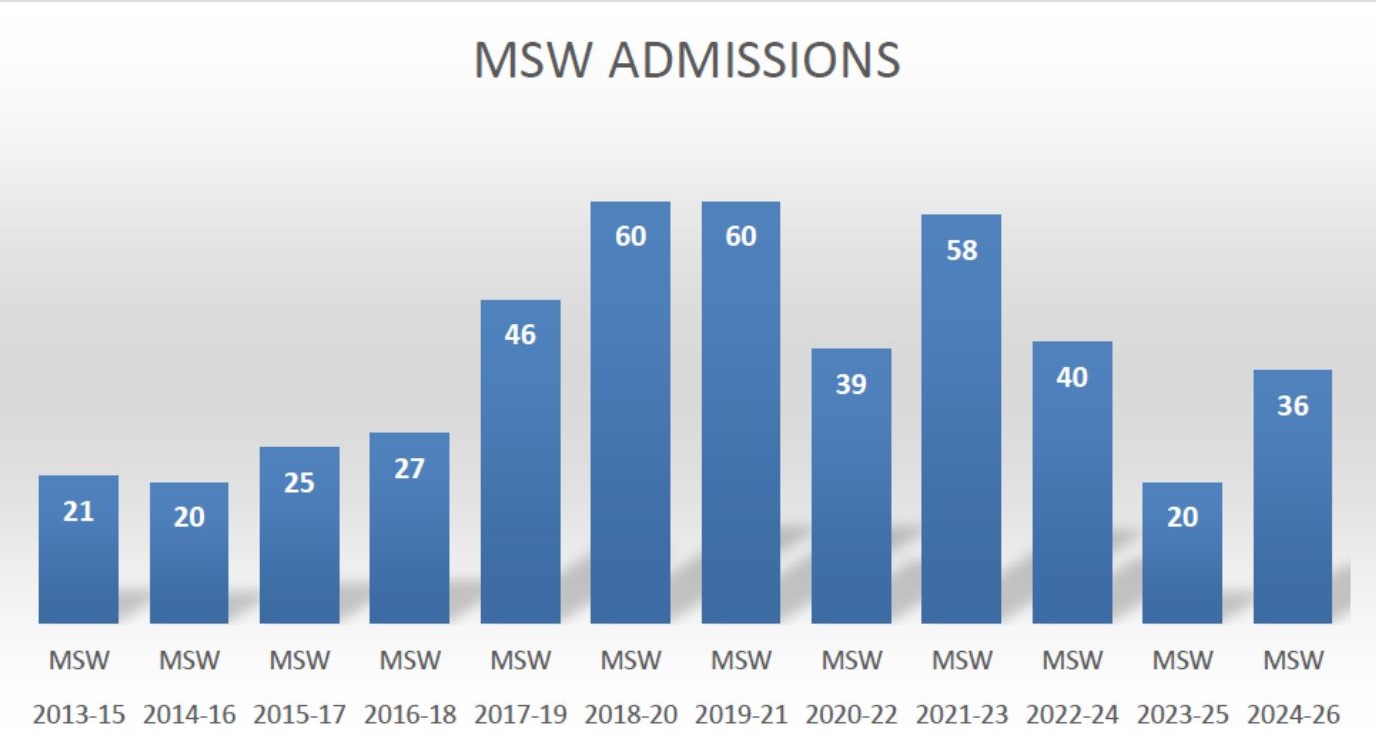
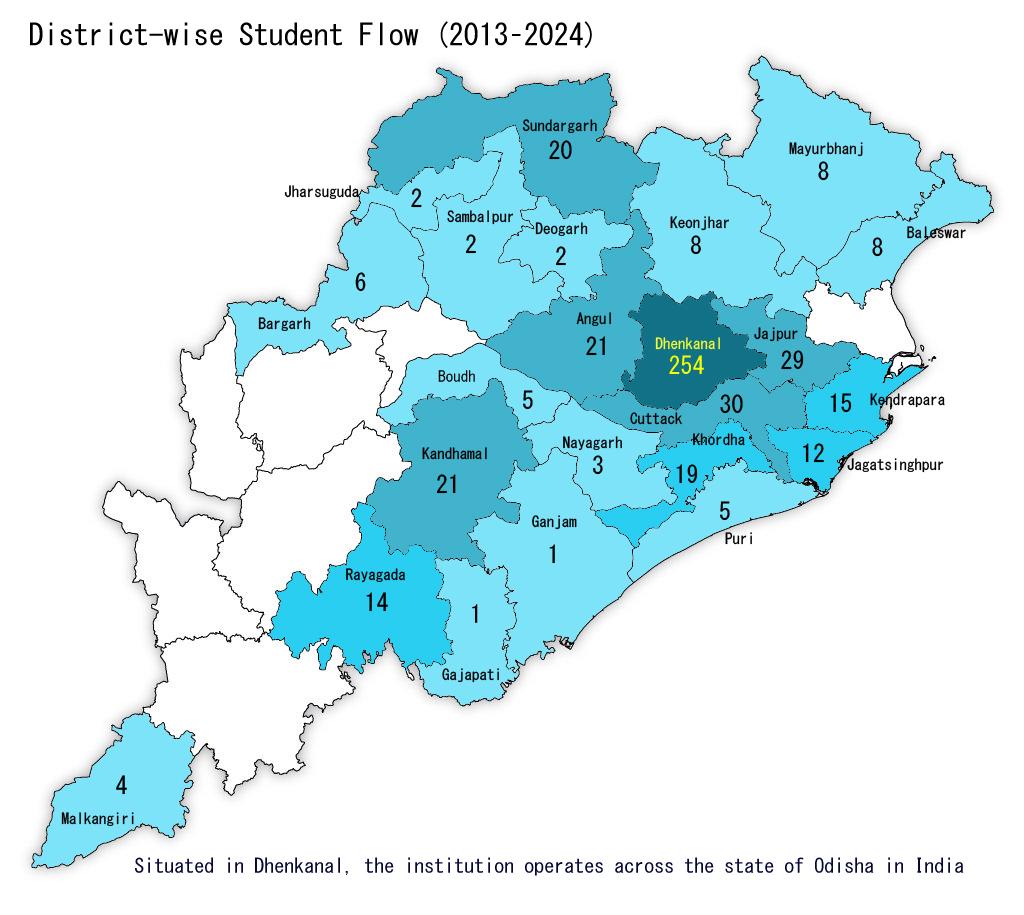
|
|
|
| The British Public School (Earlier ODMCS), Kashipur |
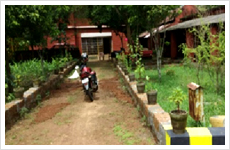 The British Public School, originally called Odisha Demonstrative Multipurpose Community School (ODMCS), was established in February 2010, and is located in Kokuajhar village of Kashipur Gram Panchayat, Gondia Block, Dhenkanal district. Its objective is to enhance the quality of education in rural tribal areas. The school curriculum is aligned with the Indian CBSE (English medium) standard set for grades I to V. A total of 65 children are studying in this school. In addition to the academic syllabus, the school also emphasizes extracurricular activities, including sports, excursions, cultural performances, dance performances, drama/theatre, music, comedy, fancy dress, etc. The students celebrate national days like Independence Day, Republic Day, Gandhi Jayanti, Children's Day, etc., in addition to festivals like Rakshabandhan, Durgapuja, Laxmipuja, Kartika purnima, Kali puja, Diwali and X Mas, Holi, etc. Students observed the festivals at the school campus with fun and happiness. Annually, positive reinforcement is given to the children by awarding certificates and prizes to top students in categories like sports, art, and cultural competency.
The British Public School, originally called Odisha Demonstrative Multipurpose Community School (ODMCS), was established in February 2010, and is located in Kokuajhar village of Kashipur Gram Panchayat, Gondia Block, Dhenkanal district. Its objective is to enhance the quality of education in rural tribal areas. The school curriculum is aligned with the Indian CBSE (English medium) standard set for grades I to V. A total of 65 children are studying in this school. In addition to the academic syllabus, the school also emphasizes extracurricular activities, including sports, excursions, cultural performances, dance performances, drama/theatre, music, comedy, fancy dress, etc. The students celebrate national days like Independence Day, Republic Day, Gandhi Jayanti, Children's Day, etc., in addition to festivals like Rakshabandhan, Durgapuja, Laxmipuja, Kartika purnima, Kali puja, Diwali and X Mas, Holi, etc. Students observed the festivals at the school campus with fun and happiness. Annually, positive reinforcement is given to the children by awarding certificates and prizes to top students in categories like sports, art, and cultural competency.
|
|
| |
|
|
|
|
|